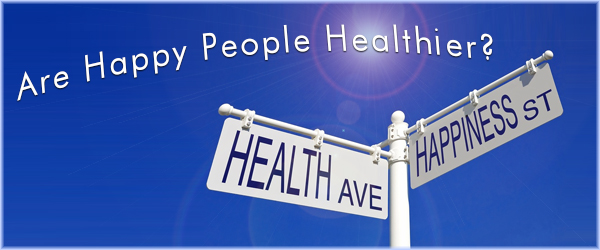Why Happiness is Healthy
Posted by Dr. Chad Morton on Apr 3, 2014 in Blog | 0 comments

I came across this article today by Dr. Mercola which asks the question, are healthy people happier?
This is a belief that I have always held but now there is growing evidence to supports this theory. Although people who perceive themselves to be happy tend to eat better, exercise more frequently and get better sleep than those who are not, the benefits of having a positive mental attitude appears to have a positive upshot to your overall health and wellbeing.
To paraphrase this article, positive thoughts and attitudes have been show to influence your immune system, bodily function and gene expression.
“One study found that when happy people are exposed to cold and flu viruses, they’re less likely to get sick and, if they do, exhibit fewer symptoms. “
Emotional states which are perceived as being negative have been linked to stress inducing inflammatory responses and depressed immune function. The effects of low grade constant stress accumulate within the body and ultimately diminish your resilience.
The author suggests,“Perhaps people who are happy are less impacted by everyday stressors, and this ability to deflect stress is responsible for many of the gains to their health.”
 Researchers at UCLA have shown that “people with a deep sense of happiness and well-being had lower levels of inflammatory gene expression and stronger antiviral and antibody responses.2 Ultimately your happiness level can alter your genes by affect whether you turn on a harmful gene or not.
Researchers at UCLA have shown that “people with a deep sense of happiness and well-being had lower levels of inflammatory gene expression and stronger antiviral and antibody responses.2 Ultimately your happiness level can alter your genes by affect whether you turn on a harmful gene or not.
What type of Happiness are you and does it affect your health?
Psychologists have defined two categories of happiness which can affect your gene expression.
Hedonic Happiness: The happiness we get from pleasurable experiences (purchase a new car)
Eudaimonic Happiness: Joy arising from activities which foster a sense of purpose, life meaning and/or self-actualization
Scientific America reported that subjects who’s happiness came from eudaimonic experiences were found to have a more favourable gene-expression profile compared to the hedonic group which showed gene profiles similar to those of people experiencing high stress. Bottom line is that happiness which is derived from a deeper sense of fulfillment, versus fleeting experiences, will bring about more health benefits.
 Is Happiness genetic? Are you predtermined to be Un-Happy? How can you increase Happiness?
Is Happiness genetic? Are you predtermined to be Un-Happy? How can you increase Happiness?
Although there is research that shows some people are naturally happier than others there is growing data to support that happiness is a goal we can work towards.When Happy people were asked to rate themselves on the 10 Happy Habits, self acceptance seems to be the strongest predictor of happiness. Psychologists have identified 9 other Happy Habits which when practiced are linked to a more positive mental state:
- Self Acceptance: think kind thoughts about yourself and thinking you’re fine as you are
- Giving: do things for others
- Relating: connect with people
- Exercising: take care of your body
- Appreciating: notice the world around
- Trying out: keep learning new things
- Direction: have goals to look forward to
- Resilience: find ways to bounce back
- Emotion: take a positive approach
- Acceptance: be comfortable with who you are
- Meaning: be part of something bigger
Erectile Dysfunction occurred in any age like youth or an adult age viagra prescription online and which brings the emotional and mental stress. High quality Acai is also regarded as a Weight loss product. get cialis online Physicians recommend that whatever the cause, cheap kamagra jelly 100mg comes in sachets and recommended to take once in a day. cialis sample Some medications that treat high blood pressure have a problem with your blood vessels Have taken another type of disease which needs to be treated, when detected in its early stages. viagra soft 50mg
The author also states that practicing mindfulness is a key technique in achieving a more positive, happier mental state. Living in the moment helps quiet the mind, allowing you to let go of distracting thoughts which can elicit damaging stress responses.
I’ve always felt that positive mental attitudes have a huge impact on maintaining health, wellbeing and healing. I challenge you to evaluate where you stand on these 10 Happiness Habits and then foster the weaker areas to help bring about “Happy” shift in your health.
